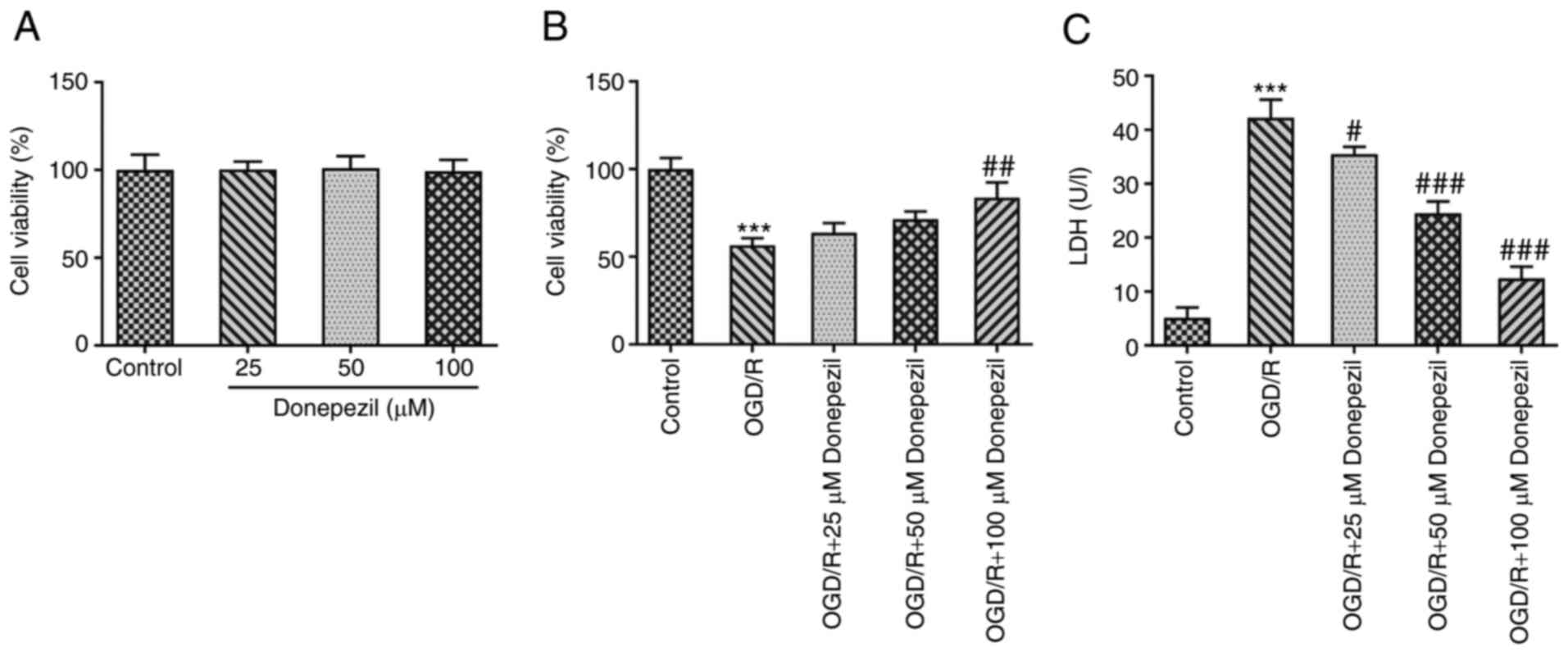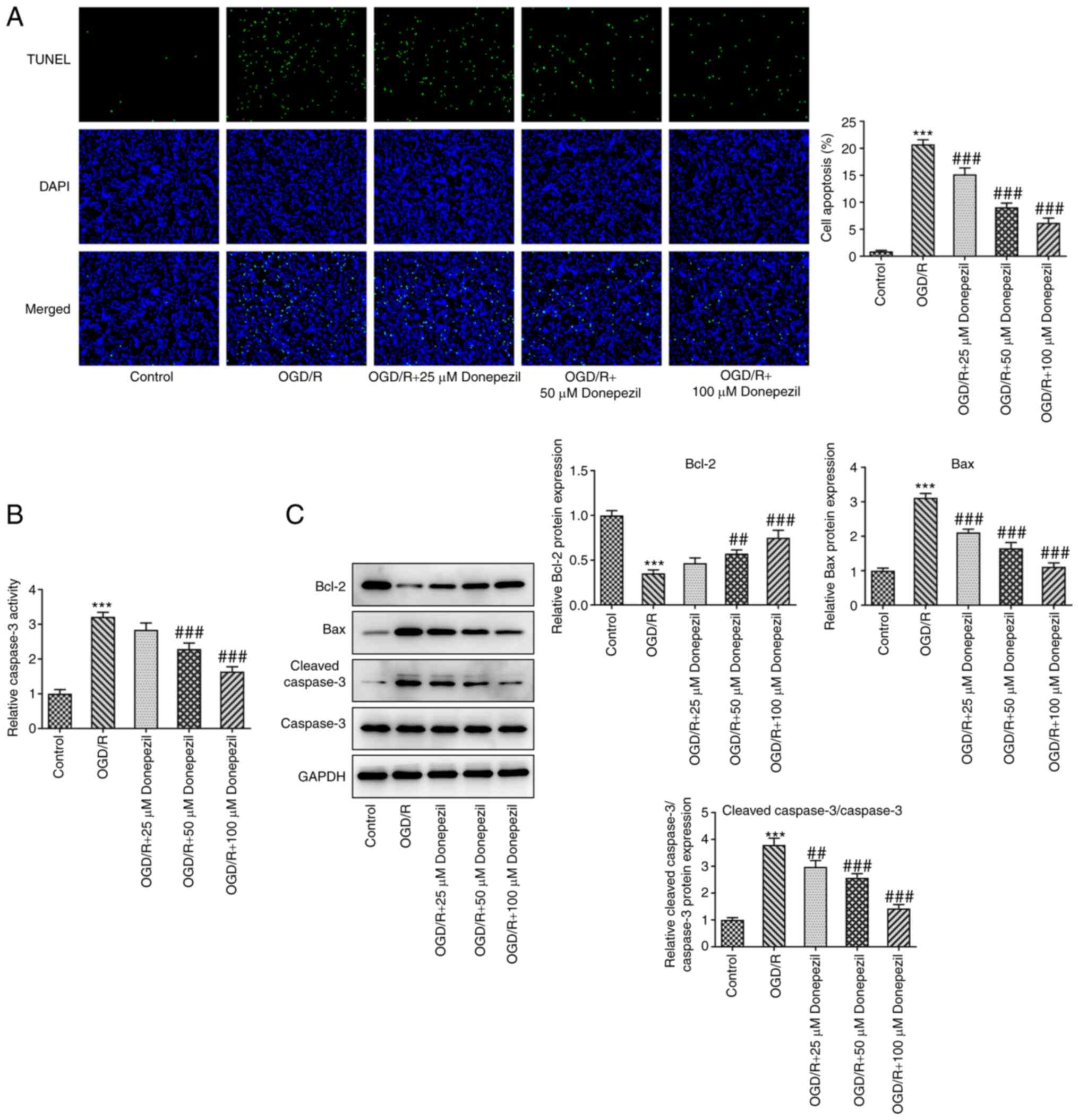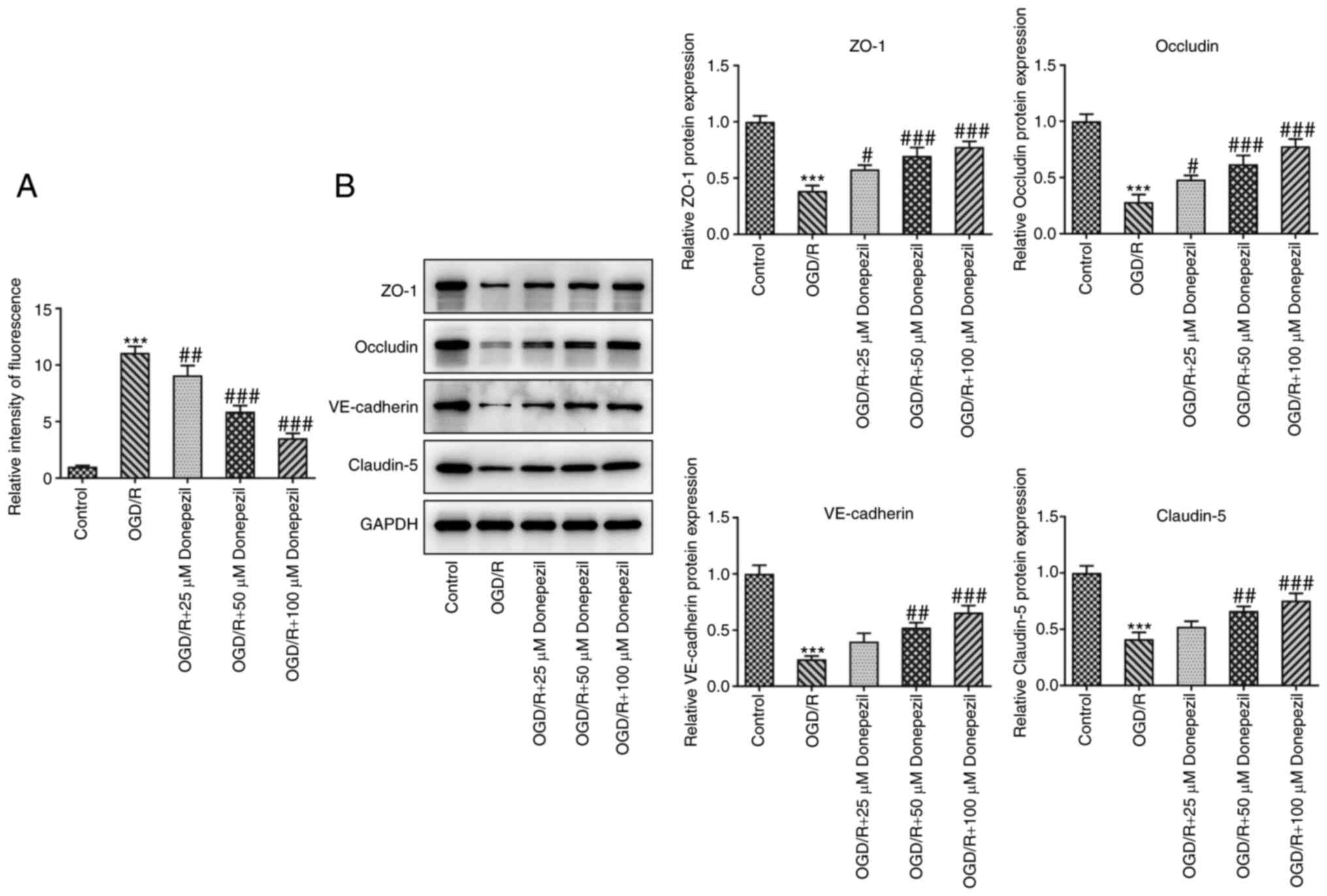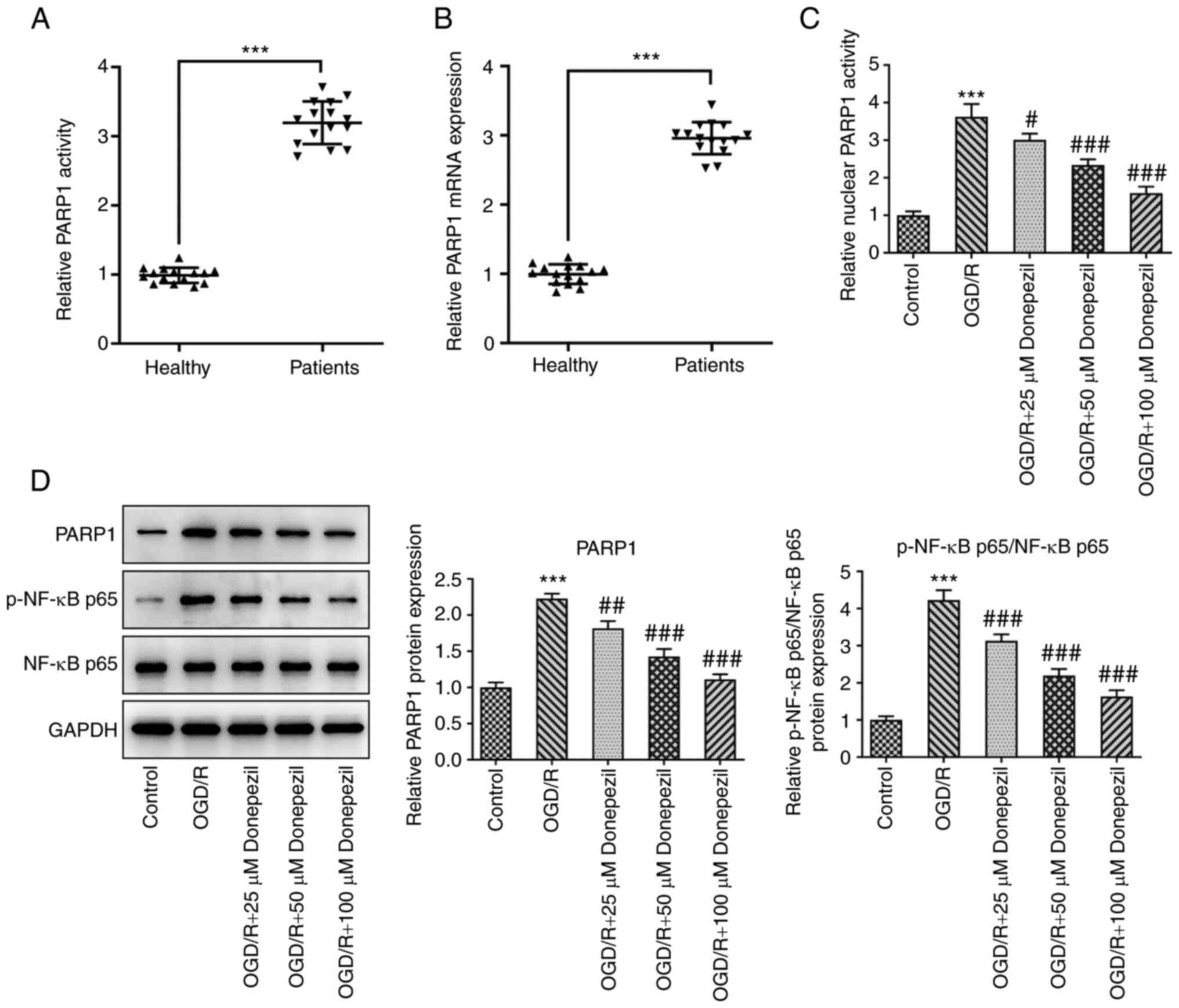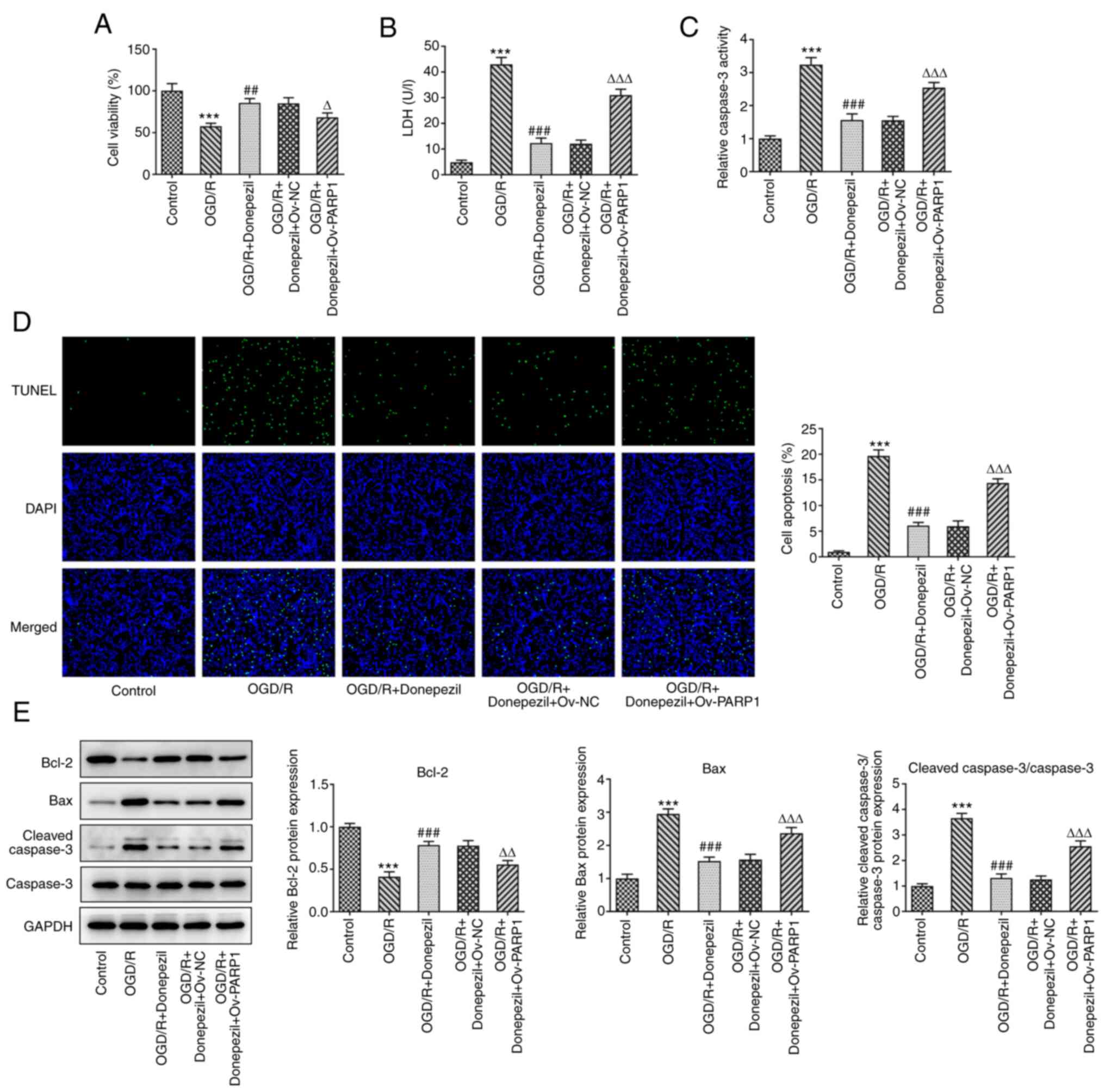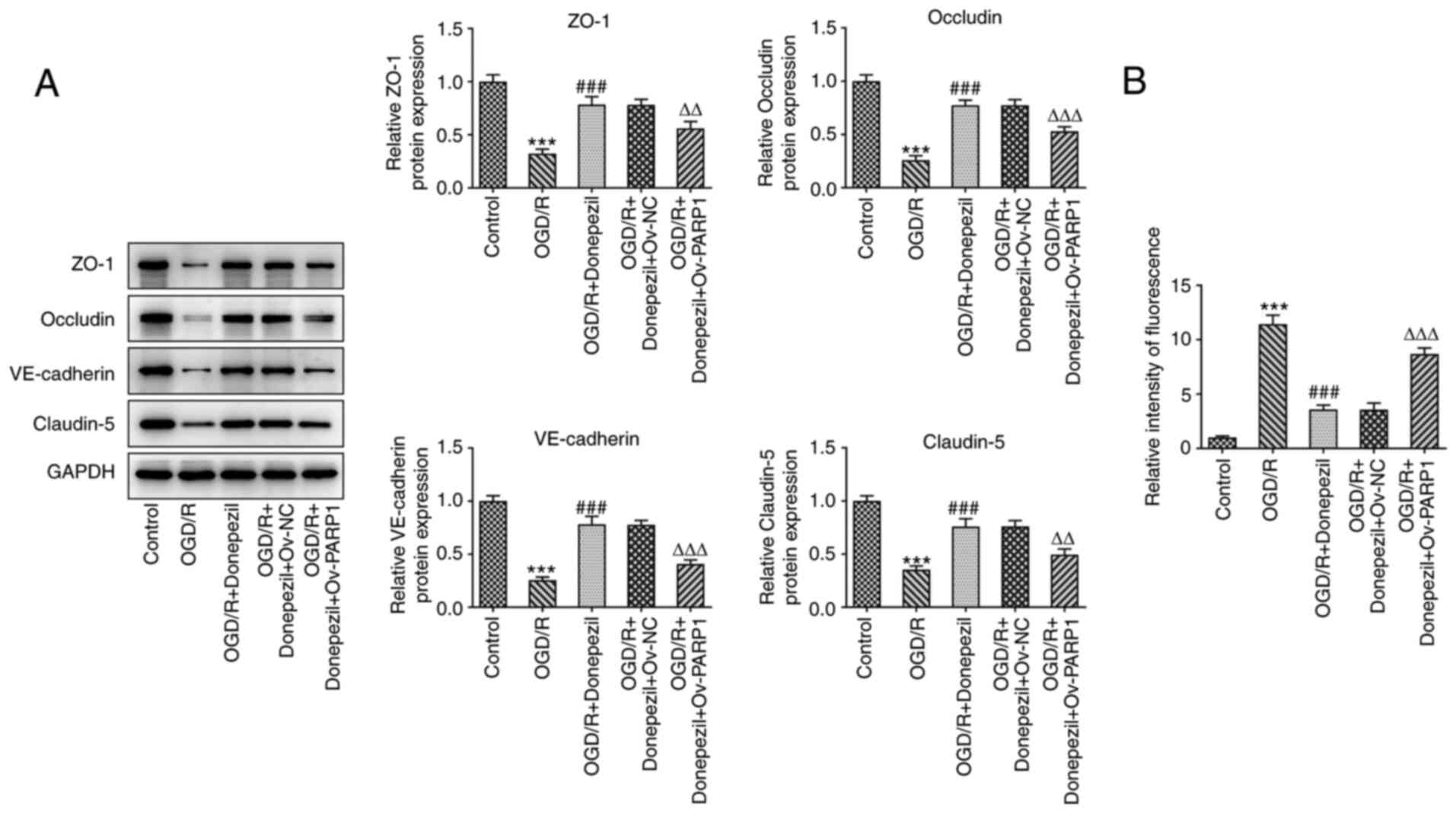|
1
|
Mozaffarian D, Benjamin EJ, Go AS, Arnett
DK, Blaha MJ, Cushman M, de Ferranti S, Després JP, Fullerton HJ,
Howard VJ, et al: Heart disease and stroke statistics-2015 update:
A report from the American heart association. Circulation.
131:e29–e322. 2015. View Article : Google Scholar : PubMed/NCBI
|
|
2
|
Frank A, Bonney M, Bonney S, Weitzel L,
Koeppen M and Eckle T: Myocardial ischemia reperfusion injury: From
basic science to clinical bedside. Semin Cardiothorac Vasc Anesth.
16:123–132. 2012. View Article : Google Scholar : PubMed/NCBI
|
|
3
|
Hausenloy DJ and Yellon DM: Myocardial
ischemia-reperfusion injury: A neglected therapeutic target. J Clin
Invest. 123:92–100. 2013. View
Article : Google Scholar : PubMed/NCBI
|
|
4
|
Toldo S, Mauro AG, Cutter Z and Abbate A:
Inflammasome, pyroptosis, and cytokines in myocardial
ischemia-reperfusion injury. Am J Physiol Heart Circ Physiol.
315:H1553–H1568. 2018. View Article : Google Scholar : PubMed/NCBI
|
|
5
|
Ongnok B, Khuanjing T, Chunchai T,
Kerdphoo S, Jaiwongkam T, Chattipakorn N and Chattipakorn SC:
Donepezil provides neuroprotective effects against brain injury and
Alzheimer's pathology under conditions of cardiac
ischemia/reperfusion injury. Biochim Biophys Acta Mol Basis Dis.
1867:1659752021. View Article : Google Scholar : PubMed/NCBI
|
|
6
|
Li M, Zheng C, Kawada T, Inagaki M, Uemura
K, Shishido T and Sugimachi M: Donepezil markedly improves
long-term survival in rats with chronic heart failure after
extensive myocardial infarction. Circ J. 77:2519–2525. 2013.
View Article : Google Scholar : PubMed/NCBI
|
|
7
|
Khuanjing T, Palee S, Kerdphoo S,
Jaiwongkam T, Anomasiri A, Chattipakorn SC and Chattipakorn N:
Donepezil attenuated cardiac ischemia/reperfusion injury through
balancing mitochondrial dynamics, mitophagy, and autophagy. Transl
Res. 230:82–97. 2021. View Article : Google Scholar : PubMed/NCBI
|
|
8
|
Tang X, Di X and Liu Y: Protective effects
of donepezil against endothelial permeability. Eur J Pharmacol.
811:60–65. 2017. View Article : Google Scholar : PubMed/NCBI
|
|
9
|
Li WH, Yang YL, Cheng X, Liu M, Zhang SS,
Wang YH and Du GH: Baicalein attenuates caspase-independent cells
death via inhibiting PARP-1 activation and AIF nuclear
translocation in cerebral ischemia/reperfusion rats. Apoptosis.
25:354–369. 2020. View Article : Google Scholar : PubMed/NCBI
|
|
10
|
Nan L, Xie Q, Chen Z, Zhang Y, Chen Y, Li
H, Lai W, Chen Y and Huang M: Involvement of PARP-1/AIF signaling
pathway in protective effects of gualou guizhi decoction against
ischemia-reperfusion injury-induced apoptosis. Neurochem Res.
45:278–294. 2020. View Article : Google Scholar : PubMed/NCBI
|
|
11
|
Gong L, Tang Y, An R, Lin M, Chen L and Du
J: RTN1-C mediates cerebral ischemia/reperfusion injury via ER
stress and mitochondria-associated apoptosis pathways. Cell Death
Dis. 8:e30802017. View Article : Google Scholar : PubMed/NCBI
|
|
12
|
Wang G, Wang T, Zhang Y, Li F, Yu B and
Kou J: Schizandrin protects against OGD/R-induced neuronal injury
by suppressing autophagy: Involvement of the AMPK/mTOR pathway.
Molecules. 24:36242019. View Article : Google Scholar : PubMed/NCBI
|
|
13
|
Wu J, Yang F, Li X, Wu T, Liu L and Song
H: Swertiamarin protects neuronal cells from oxygen glucose
deprivation/reoxygenation via TLR4/PARP1/NF-κB pathway. Pharmazie.
74:481–484. 2019.PubMed/NCBI
|
|
14
|
Livak KJ and Schmittgen TD: Analysis of
relative gene expression data using real-time quantitative PCR and
the 2(−Delta Delta C(T)) method. Methods. 25:402–408. 2001.
View Article : Google Scholar : PubMed/NCBI
|
|
15
|
Sun S and Wang P: Coptisine alleviates
ischemia/reperfusion-induced myocardial damage by regulating
apoptosis-related proteins. Tissue Cell. 66:1013922020. View Article : Google Scholar : PubMed/NCBI
|
|
16
|
Xu Y, Tang C, Tan S, Duan J, Tian H and
Yang Y: Cardioprotective effect of isorhamnetin against myocardial
ischemia reperfusion (I/R) injury in isolated rat heart through
attenuation of apoptosis. J Cell Mol Med. 24:6253–6262. 2020.
View Article : Google Scholar : PubMed/NCBI
|
|
17
|
Ge L, Cai Y, Ying F, Liu H, Zhang D, He Y,
Pang L, Yan D, Xu A, Ma H and Xia Z: miR-181c-5p exacerbates
hypoxia/reoxygenation-induced cardiomyocyte apoptosis via targeting
PTPN4. Oxid Med Cell Longev. 2019:19579202019. View Article : Google Scholar : PubMed/NCBI
|
|
18
|
Seltzer B: Donepezil: An update. Expert
Opin Pharmacother. 8:1011–1023. 2007. View Article : Google Scholar : PubMed/NCBI
|
|
19
|
Adlimoghaddam A, Neuendorff M, Roy B and
Albensi BC: A review of clinical treatment considerations of
donepezil in severe Alzheimer's disease. CNS Neurosci Ther.
24:876–888. 2018. View Article : Google Scholar : PubMed/NCBI
|
|
20
|
Birks JS and Harvey RJ: Donepezil for
dementia due to Alzheimer's disease. Cochrane Database Syst Rev.
6:CD0011902018.PubMed/NCBI
|
|
21
|
Barrett KM, Brott TG, Brown RD Jr, Carter
RE, Geske JR, Graff-Radford NR, McNeil RB and Meschia JF; Mayo
Acute Stroke Trial for Enhancing Recovery (MASTER) Study Group, :
Enhancing recovery after acute ischemic stroke with donepezil as an
adjuvant therapy to standard medical care: Results of a phase IIA
clinical trial. J Stroke Cerebrovasc Dis. 20:177–182. 2011.
View Article : Google Scholar : PubMed/NCBI
|
|
22
|
Wang T, Lv P, Jin W, Zhang H, Lang J and
Fan M: Protective effect of donepezil hydrochloride on cerebral
ischemia/reperfusion injury in mice. Mol Med Rep. 9:509–514. 2014.
View Article : Google Scholar : PubMed/NCBI
|
|
23
|
Ye W, Gong X, Xie J, Wu J and Zhang X,
Ouyang Q, Zhao X, Shi Y and Zhang X: AChE deficiency or inhibition
decreases apoptosis and p53 expression and protects renal function
after ischemia/reperfusion. Apoptosis. 15:474–487. 2010. View Article : Google Scholar : PubMed/NCBI
|
|
24
|
Akasofu S, Kosasa T, Kimura M and Kubota
A: Protective effect of donepezil in a primary culture of rat
cortical neurons exposed to oxygen-glucose deprivation. Eur J
Pharmacol. 472:57–63. 2003. View Article : Google Scholar : PubMed/NCBI
|
|
25
|
Kakinuma Y, Furihata M, Akiyama T, Arikawa
M, Handa T, Katare RG and Sato T: Donepezil, an
acetylcholinesterase inhibitor against Alzheimer's dementia,
promotes angiogenesis in an ischemic hindlimb model. J Mol Cell
Cardiol. 48:680–693. 2010. View Article : Google Scholar : PubMed/NCBI
|
|
26
|
Zhou S, Li Z, Liu P, Wang S, Zhao J and
Zhang G: Donepezil prevents ox-LDL-induced attachment of THP-1
monocytes to human aortic endothelial cells (HAECs). Chem Res
Toxicol. 33:975–981. 2020. View Article : Google Scholar : PubMed/NCBI
|
|
27
|
Nagai W, Okita N, Matsumoto H, Okado H,
Oku M and Higami Y: Reversible induction of PARP1 degradation by
p53-inducible cis-imidazoline compounds. Biochem Biophys Res
Commun. 421:15–19. 2012. View Article : Google Scholar : PubMed/NCBI
|
|
28
|
Shen B, Mei M, Pu Y, Zhang H, Liu H, Tang
M, Pan Q, He Y, Wu X and Zhao H: Necrostatin-1 attenuates renal
ischemia and reperfusion injury via meditation of
HIF-1α/mir-26a/TRPC6/PARP1 signaling. Mol Ther Nucleic Acids.
17:701–713. 2019. View Article : Google Scholar : PubMed/NCBI
|
|
29
|
Zhang Y, Park TS and Gidday JM: Hypoxic
preconditioning protects human brain endothelium from ischemic
apoptosis by Akt-dependent survivin activation. Am J Physiol Heart
Circ Physiol. 292:H2573–H2581. 2007. View Article : Google Scholar : PubMed/NCBI
|















